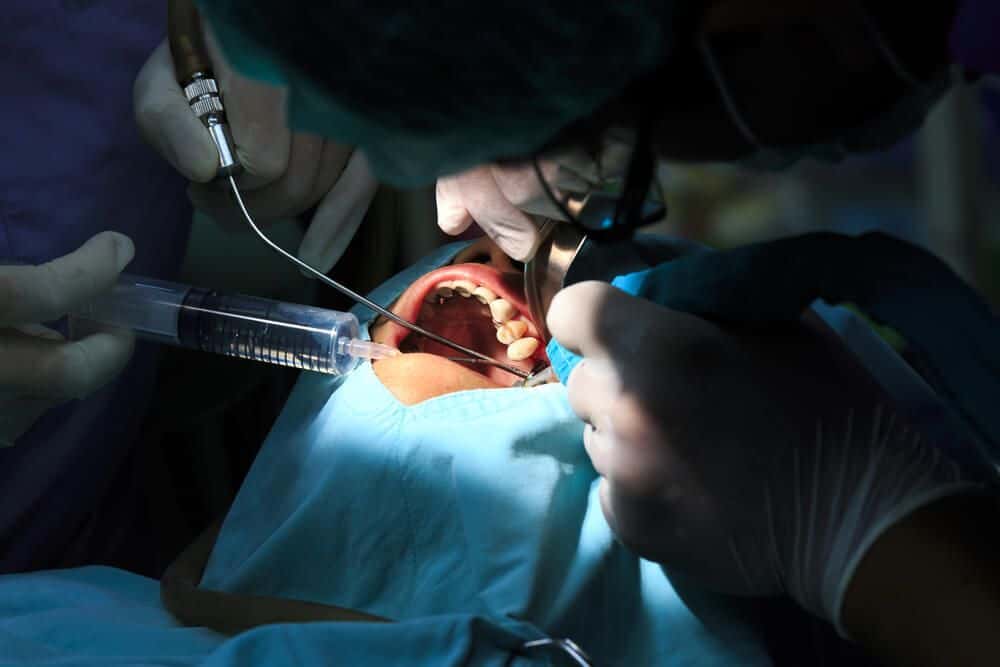Oral Surgery Expert Opines on Post-Surgical Brain Damage
Updated on
This case involves a 27-year-old male who underwent an elective procedure to correct a cleft palate. After the surgery, he was observed for approximately one hour before being released. A few hours later, he contacted the surgery center asking for a nurse to come to his house in order to address complaints of swelling, difficulty breathing and general discomfort. The nurse arrived at the man’s house with a suction machine and began performing multiple rounds of suction on the patient. The patient continued to complain of difficulty breathing, and the nurse checked his oxygen levels multiple times by pulse oximetry, however all of the readings were within the normal range. The patient continued to deteriorate over the next few hours and pleaded to be taken to the hospital, however the nurse insisted that it would not be necessary. Eventually, the patient became unresponsive. EMS was called, and the EMTs attempted intubation, but were unsuccessful due to swelling. An emergency tracheotomy was performed and the patient was transported to the hospital. He has since suffered ongoing difficulties due to hypoxic brain injuries.
Question(s) For Expert Witness
1. Have you ever had a patient develop the outcome described in the case?
2. Do you believe there was a deviation in the standard of care that may have led to this patient's outcome?
Expert Witness Response E-009576
 I am a board certified oral and maxillofacial surgeon and, until recently, the program director for an accredited training program in oral and maxillofacial surgery at a prominent school in the south. In fact, I do routinely perform these procedures; my volume varies but anywhere from 5 to 10 per year. Over the course of my entire career, I have had one post-operative death after mandibular surgery subsequent to the patient leaving our care on post operative day 2. This was a sleep apnea case and the patient was obese which put him at a much higher risk for a complication like this. From the summary provided regarding this matter, the patient probably would have fared better in the hospital: particularly since difficulty breathing was a primary complaint. However, the standard of care for a single-jaw orthognathic surgery in a healthy patient would be to send the patient home on the same day of surgery.
I am a board certified oral and maxillofacial surgeon and, until recently, the program director for an accredited training program in oral and maxillofacial surgery at a prominent school in the south. In fact, I do routinely perform these procedures; my volume varies but anywhere from 5 to 10 per year. Over the course of my entire career, I have had one post-operative death after mandibular surgery subsequent to the patient leaving our care on post operative day 2. This was a sleep apnea case and the patient was obese which put him at a much higher risk for a complication like this. From the summary provided regarding this matter, the patient probably would have fared better in the hospital: particularly since difficulty breathing was a primary complaint. However, the standard of care for a single-jaw orthognathic surgery in a healthy patient would be to send the patient home on the same day of surgery.
About the author
Joseph O'Neill
Joe has extensive experience in online journalism and technical writing across a range of legal topics, including personal injury, meidcal malpractice, mass torts, consumer litigation, commercial litigation, and more. Joe spent close to six years working at Expert Institute, finishing up his role here as Director of Marketing. He has considerable knowledge across an array of legal topics pertaining to expert witnesses. Currently, Joe servces as Owner and Demand Generation Consultant at LightSail Consulting.
Subscribe to our newsletter
Join our newsletter to stay up to date on legal news, insights and product updates from Expert Institute.
Sign up nowFind an expert witness near you
What State is your case in?
Subscribe to our newsletter
Join our newsletter to stay up to date on legal news, insights and product updates from Expert Institute.



